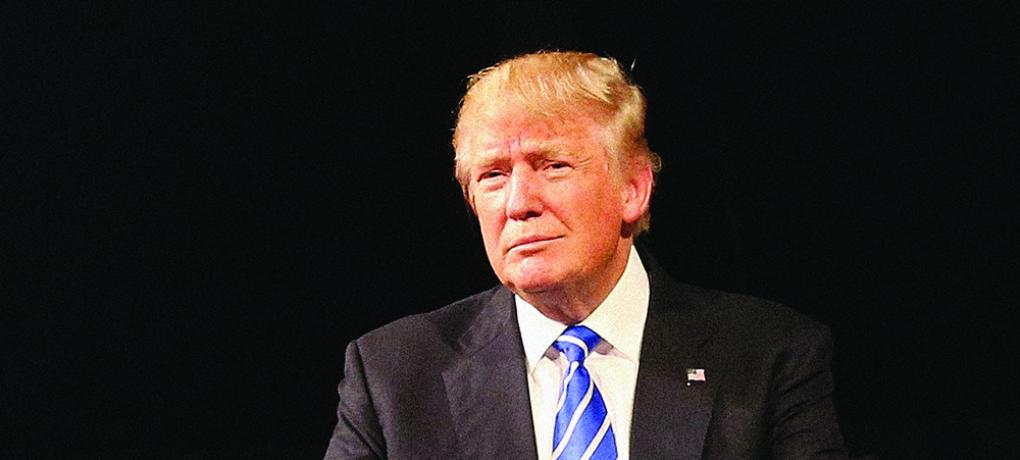Jacob G Hornberger |
If allegations of sexual affairs with Donald Trump made by porn star Stormy Daniels and former Playboy Playmate Karen McDougal are true (and Trump denies them), a question arises: Should Trump be prosecuted and, if convicted, jailed for engaging in adultery? It is undisputed that Trump was married at the time the alleged affairs occurred, which would make him guilty of adultery.
After all, let’s not forget: Adultery is a sin, a grave sin. It is even proscribed in the Ten Commandments. Nonetheless, my hunch is that most Americans would say no. They would say that Trump’s personal life is no business of the state and its criminal-justice system.
It shouldn’t surprise anyone that is certainly the libertarian position. Libertarians hold that the state should go after people who initiate force or fraud against others — e.g., murderers, rapists, burglars, robbers, and so forth. All peaceful conduct, no matter how immoral, sinful, harmful, or destructive, should be left outside the ambit of the state’s criminal-justice system. Thus, what people do in the privacy of his their own bedroom or the rest of their home is none of the state’s business.
Statists often argue that legalizing drugs would send a wrong message, one that would suggest that drug use is no big deal. Really? Did the legalization of booze communicate an approval of drinking or alcoholism? Does the fact that cigarette smoking is legal imply endorsement of that conduct?
The libertarian principle naturally applies to adultery, which is entirely peaceful and consensual. But it’s not limited to adultery. It also extends to the ingestion of what might be considered harmful substances. Liquor and beer come to mind. So does tobacco. And marijuana, cocaine, heroin, meth, or opioids. None of it is the state’s business. What a person does in his private life is no business of the state, so long as his conduct is peaceful and doesn’t violate the rights of others.
But isn’t adultery harmful? It can be, just as liquor, beer, tobacco, and cocaine can be. They can all tear a family apart. But such harm is something that should be left to the social, societal arena, such as with counseling or rehabilitation, not the government arena. As long as there is no initiation of force, peaceful activity, no matter how immoral or harmful, is no business of the state and its criminal-justice system.
Read more: What is the biggest threat to the United States?
Now, here is what might surprise you: According to Wikipedia, adultery is illegal in 21 states. If Trump carried out the alleged affairs with Daniels and McDougal in any of those 21 states, he could find himself being criminally prosecuted. So far, it seems that Trump is in no criminal jeopardy since initial indications are that the affairs allegedly took place in California and Nevada, two states where adultery isn’t a crime.
Those 21 states reflect the buttinski mindset of both liberals and conservatives. Unlike libertarians, they believe that a person’s private life is the business of the state. They want the government to do whatever is necessary to ensure that people behave themselves in their bedrooms and other parts of their home or other private establishments.
It shouldn’t surprise anyone that that that is certainly the libertarian position. Libertarians hold that the state should go after people who initiate force or fraud against others — e.g., murderers, rapists, burglars, robbers, and so forth.
That’s what drug laws are all about. That’s what alcohol Prohibition was all about. That’s what adultery laws are all about. That’s what sodomy laws were all about (before the U.S. Supreme Court declared them unconstitutional). They all reflect the buttinski mindset of liberals and conservatives.
Statists often argue that legalizing drugs would send a wrong message, one that would suggest that drug use is no big deal. Really? Did the legalization of booze communicate an approval of drinking or alcoholism? Does the fact that cigarette smoking is legal imply endorsement of that conduct? Does the legalization of gambling suggest that everyone should go out and start gambling? Does advocating the legalization of adultery mean that proponents are endorsing adultery?
Read more: Is US destroying itself through foreign interventions?
Or does advocating the legalization of peaceful activities that might be considered harmful, immoral, sinful, or destructive simply mean that people favor the principles of a free society? Also perhaps an acknowledgement that the criminalization of such activities never works and always makes the situation worse, as it did with Prohibition and as it does with drugs.
One thing is for certain: President Trump would be wise not to engage in extramarital affairs if he visits Pakistan or Saudi Arabia, two authoritarian allies of the U.S. government. That’s because adultery is a death-penalty offense in those two countries, which should cause Americans to reflect on whether laws criminalizing adultery, drugs, booze, tobacco, gambling, and other peaceful activities belong in a society that purports to be free.
Jacob G. Hornberger is founder and president of The Future of Freedom Foundation. He was a trial attorney for twelve years in Texas. He also was an adjunct professor at the University of Dallas, where he taught law and economics. In 1987, Mr. Hornberger left the practice of law to become director of programs at the Foundation for Economic Education. This article was first published in The Future of Freedom Foundation and is republished here with permission. The views expressed in this article are the author’s own and do not necessarily reflect Global Village Space’s editorial policy.














